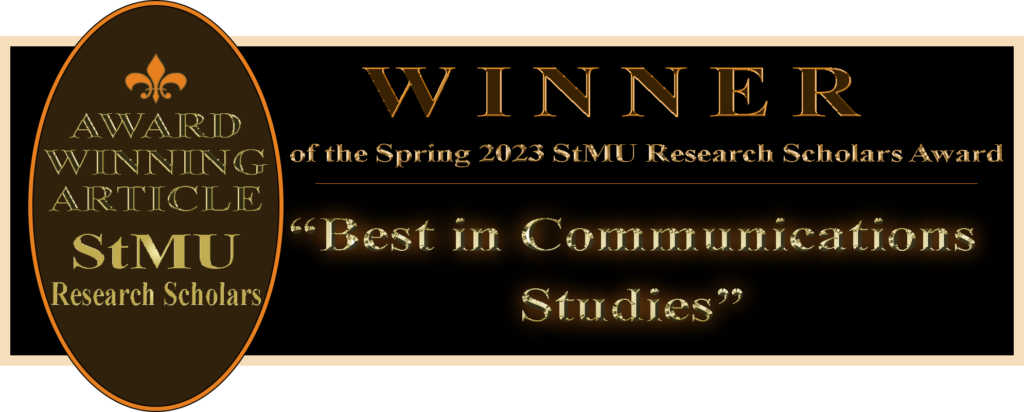
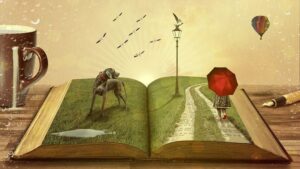
I grew up reading. When my grandparents wanted to go on a special outing with me, we went to Barnes and Noble to pick out a good book. Now, when my sister and I want to go out together, we stop by a Half Price Books looking for something we haven’t read. I spent most of my free time growing up in my school libraries and every weekend (sometimes twice if I really begged) my dad took me to the public library around the corner. Books have shaped who I am. They have provided me with a safe place to learn and question.
I chose the topic of Book Banning because one of my Professors sent me an email with the alarming statistics of books that have either been banned or are being challenged. It’s scary to realize that we aren’t living in a society where intellectual property is respected. Book bannings are a direct attack on the essence of the United States- individualization and personal expression. In the United States is driven by a complex set of factors, including moral and religious concerns, political ideologies, concerns about offensiveness, protection of children, and lack of understanding or misinformation. However, it is important to note that book banning often raises significant issues related to free speech and intellectual freedom, and many individuals and organizations work to promote the freedom to read and access to a wide range of ideas and information.
Here is what Book Banning Looks Like Today
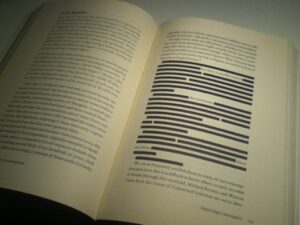
Book bannings as defined by PEN American, a 100 year old non-profit organization dedicated to fighting censorship, “as any action taken against a book based on its content and as a result of parent or community challenges, administrative decisions, or in response to direct or threatened action by lawmakers or other governmental officials, that leads to a previously accessible book being either completely removed from availability to students, or where access to a book is restricted or diminished.” There are many ways to look at book banning. If I’m an adult not all that interested in reading books, I may not feel very affected by it. However, there is one type of book banning that may have affected all of us at one point in time, that’s the censorship taking place in school libraries, school classrooms, and school districts.
When discussing the curriculum or what books are made available at school libraries, the practices of collection maintenance and weeding are followed. These guidelines are published by the American Library Association (ALA) in order to provide policy on what resources should be available in libraries. School libraries annually inventory to “determine losses and remove damaged or worn materials”. Librarians also consider the collection of materials and evaluate whether or not the are relevant to the curriculum. Librarians at universities will also do this and in addition evaluate if the material aligns with the university’s mission and needs 1. This systematic appraisal allows for regular updates to library collections in a safe and democratic way. The general public doesn’t often realize these types of updates happen as a routine part of a librarians responsibility. If content is banned legislatively, or is not aligned with the mission of the library owner, then removal is encouraged.
The three main themes of books that have been challenged are race and racism, LGBTQ+ representation, and sexually explicit content. The ALA poll shows that the majority of public school parents believe in making this content available on an age appropriate basis. 84% of voters believe that works focused on the the role of slavery and racism in forming America should be present. This includes works such as as the “1619 Project” and literature that use racial slurs like “Huckleberry Finn,” and “To Kill a Mockingbird”. Similarly 68% of voters agree that novels for young adults like “Ghost Boys” and “The Hate U Give” that show violence against black people are necessary to have available. 65% of voters agree that fiction and non-fiction books about lesbian, gay, and transgender individuals, such as “George” and “This Day in June” should be present in public and school libraries. And 57% of voters think that books like “Beloved” and “Looking for Alaska” that are fiction and have sexually explicit content, including scenes of sexual violence should be included in the library catalog.
In a poll published by YouGov in collaboration with CBS News, more than 8 out of 10 Americans don’t believe you should ban books for discussing race or criticizing U.S. history. This 2022 survey “was conducted with a nationally representative sample of 2,494 U.S. adult residents interviewed between February 15-18, 2022”. In an innovative approach, the ALA created a poll focusing on public and school libraries. This poll highlighted the “ near-universal high regard for librarians and recognition of the critical role that public and school libraries play in their communities.”2
The ALA poll shows that “7 in 10 voters oppose efforts to remove books from public libraries, including majorities of voters across party lines”. It also demonstrates that 74% of public school parents trust that school librarians make good decisions on what books are available for their children. In a breakdown of political parties, the ALA survey shows that 71% of voters oppose efforts to have books removed from their local public libraries. This includes 75% of Democrats, 58% of independents, and 70% of Republicans who voted. These findings exhibit that a wide spectrum of voters are concerned with the movement to ban books from school and public libraries.
Despite these statistics when I open up my news tab it feels like there are so many people protesting books in school and public libraries. The ALA identifies that more than 330 unique cases of book bans and challenges were reported between September 1st and November 30th of 2021. These totals have been drastically increasing since 2019 and continue to increase into 2023. However it is not just students and parents who are affected, it is also librarians and library staff who are impacted.3
In the New York Times article, “With Rising Book Bans, Librarians Have Come Under Attack“, reporters Elizabeth A. Harris and Alexandra Alter tell the story of Martha Hickson. Hickson is a high school librarian in Annandale, New Jersey whose library has recently been called into question by parents in local school board meeting. In the school board meeting, Hickson was called out by name by a parent reprimanding her for letting the parent’s 16 year old check out books with queer characters. In the meeting parents hurled accusations that the librarians were “grooming” their children.

Another point discussed in this article is the misnomer that all librarians are liberal. Carolyn Foote, founder of the group Freedom Fighters, which organizes to defend librarians and a retired librarian confronts this idea stating that curating a well rounded selection of books is not partisan it is a matter of professional ethics. Challenging books in public schools has become a destructive trend intent on limiting librarian’s jurisdiction. Book bannings violate librarians’ ability to exercise their expertise.
Patricia Wong, ALA President, discusses that the ALA survey and subsequent article, “Large majorities of voters oppose book bans and have confidence in libraries” saying the “survey results confirm what we have known and observed: that banning books is widely opposed by most voters and parents”. She follows that she is “thrilled to see that parents have a high degree of confidence in school libraries’ decisions about their collections and very few think that school librarians ignore parents’ concerns. This truly validates the value and integrity of library professionals at a time when many are feeling burnt out because of accusations made by small but loud groups.”4
So what can we do to support our librarians and democracy in our education?
Please pay attention to the news. Even if it isn’t your state or school district, it is someone’s. Get involved in local organizations and libraries that are working against this type of censorship.
This is a link to a list of organizations: https://libguides.law.uconn.edu/c.php?g=345484&p=2327933 Get in touch with a local librarian and see what they need/recommend.
Lastly, READ BANNED BOOKS.
The ALA Banned & Challenged Books website encourages participation in Banned Books Week (September 26- October 2) by reading and discussing a banned book. Banned Book Week has existed since 1982. An effort of bookstores and libraries to create space for read-outs of banned and challenged books.
Resource:
https://www.ala.org/advocacy/bbooks/frequentlychallengedbooks/top10
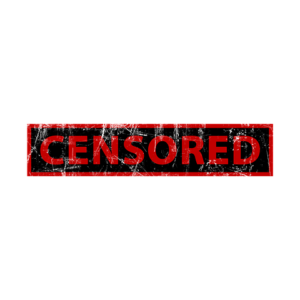
- American Library Association. Collection Maintenance and Weeding, (ALA, 2018) ↵
- American Library Association. Large majorities of voters oppose book bans and have confidence in libraries, (ALA, 2022) ↵
- Elizabeth A. Harris and . With Rising Book Bans, Librarians Have Come Under Attack, ( New York Times, 2022) ↵
- American Library Association. Large majorities of voters oppose book bans and have confidence in libraries, (ALA, 2022) ↵


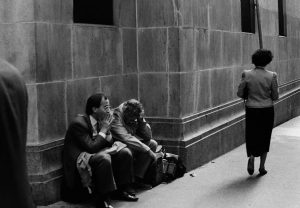

31 comments
Guiliana Devora
This is an incredible article and the author did an amazing job of writing it! Congratulations as well on the nomination for the Best Publication in the Category of: Communications. This essay was formatted very well and kept me wanting to read line after line. For me this topic is very interesting because some of the books I grew up reading are now banned for children today. To me that is crazy to think about because they will not get to experience the joy I got from that book.
Danielle Sanchez
Congratulations on your nomination! This article was informative and well written! Book bannings as defined by PEN American, a 100 year old non-profit organization dedicated to fighting censorship, “as any action taken against a book based on its content and as a result of parent or community challenges, administrative decisions, or in response to direct or threatened action by lawmakers or other governmental officials, that leads to a previously accessible book being either completely removed from availability to students, or where access to a book is restricted or diminished.”
Gabriella Galdeano
Congratulations on your nomination for Best in Communications! I loved the “Worlds within Books” picture. I also liked how you personalized your introduction. I was an avid reader when I was younger, but I have not been reading as much lately. Book banning is going to be harmful to the younger generations as they are shielded from what these books can teach.
Madison Magaro
Congratulations on your nomination! I really enjoyed how you started the article off with what books meant to you. Book banning should not be happening because even if the topic is inappropriate, people still have the right to learn more about the topic and introduce people to new topics. Overall this was a great article and I could tell how much this topic means to you.
Andrea Tapia
Hi Sophia, Congratulations on getting your article published! The title of this article really caught my attention especially since we are hearing more often about this issue with banning books in public schools and libraries. For me, I believe that we shouldn’t do this it just keeps us away from being able to read better and gain new vocabulary we may not learn in our daily lives. I also had spent most of my middle school time going to the library. I am not a big reader, but from time to time I do enjoy picking up a book and taking a moment to relax. Books have allowed us to heal in many ways with the characters and the overall plot of the story without them we would be on our phones more often which we lose focus on what life is really about.
Sofia Perez
I find this article to be very authentic in the sense that these books offer knowledge, regardless whether if it is considered “inappropriate” based on certain ethic codes. I agree that we live in a society where intellectual property can be banned. I have read some of these books myself and think they are amazing books! We need to encourage more people to read more! It can definitely be helped to relieve stress that comes with university.
Hailey Koch
First I wanna say congrats on your nomination and I really enjoyed the topic you chose. I didn’t really like books growing up because once school was over I didn’t want to read more after that. As I got older I found that I enjoyed books again this was because I loved being informed about things I was unaware of. I had no idea book banning was such a major thing until your article introduced me to it. This is a scary concept considering books are used to inform us about new things and if those books are banned how are we supposed to be properly educated.
Isabella Lopez
I love this advocacy for knowledge. Librarians are trained professionals with years of experience. They know more about the impact books have on society and they should be the ones who govern over that. The simple fact is that people attack what they are scared off and I think you subtly hinted that in a very professional way.
Vincent Villanueva
This opinionated article is one in which I can completely agree with. Growing up, there were many books I was privileged to read in school that are now no longer allowed in schools because they are politically immoral. I agree with your statement in which you say that banning books are a “direct attack” on the individualization of the United States and things need to change. Thank you.
Natalia Bustamante
Hi Sophia! I feel like you choose a really important topic to write about. It is such an interesting topic that people should be more aware of. No book should be banned, especially important and informative books. The banning of books has increased dramatically, especially over the past recent years. Most importantly, as you stated, they are important that touch on essential topics. Overall, great article! I really enjoyed every bit of it.